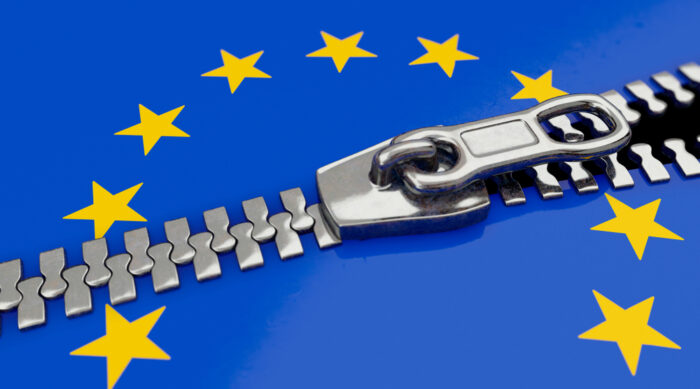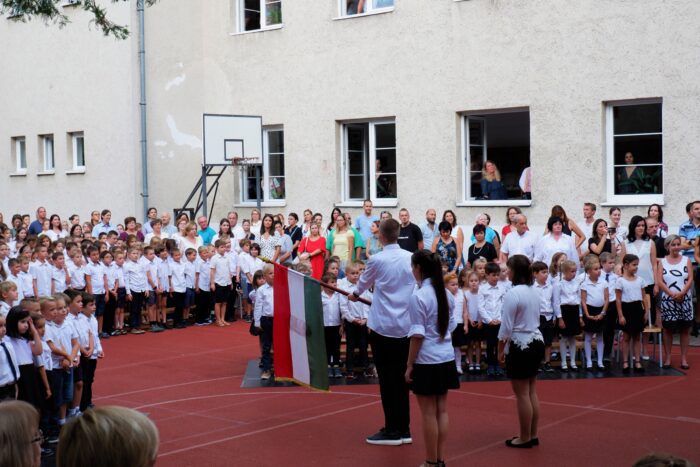Find all related Progressive Post
Progressive Post

Rural citizens must benefit, like any others, from equitable conditions to achieve their professional, social, and personal goals. This is a moral obligation to which we are obliged as a society. It is also an ethical and political imperative if we are genuinely engaged in accomplishing the European Pillar of Social Rights. A strong social Europe that is just, inclusive, and with plenty of opportunities along its green and digital transitions, cannot leave anyone behind.
Rural areas will be central to harnessing the significant global opportunities and addressing the big societal challenges we are already facing, by providing ecosystem services essential to mitigate climate change and environmental deterioration, and ensuring sustainable food production, while also preserving immaterial patrimony that is embedded in the multiple cultural legacies of the rural world.
However, rural areas in the EU, particularly remote and less developed ones, face significant challenges, which are still to find adequate responses from public policies. Because of this permanent lack of political attention, many rural communities across Europe feel that their needs are less considered, if not completely forgotten, in the political decision-making. This creates fertile ground for civic and political disengagement.
Population decline and an ageing population, fewer quality job and education opportunities, a higher percentage of the people at risk of poverty and social exclusion, lack of access to high-quality services of general interest, climate and environmental pressures, lower connectivity and less access to innovation – these are dangerous ingredients that fuel the growing discontent among rural populations. Rural, and remote areas in particular, are experiencing a considerable population decline, which in many cases has resulted in further public cuts to infrastructures, forcing rural areas to get locked in a perpetual cycle of decline that may further exacerbate the economic weakening they are already facing, and thereby widen the gap.
Rural areas have been struggling to get their voices heard in a way that is meaningfully appropriated by political decision- makers. Their thin population and their distance from the centres of decision have translated in practical terms into a lack of political visibility and representation that could reflect their territorial, economic and social relevance. The diversity and heterogeneity of rural areas and the cross-cutting nature of their challenges further contribute to the persisting lack of appropriate responses to rural communities’ needs. Closer to, or farther from urban centres, in remote or mountainous areas, or in outermost regions, rural areas’ challenges and strengths are different, requiring specific development strategies and solutions.
The lack of territorial contextualisation of EU policies is one of the main challenges the European Union has to face in its support of rural areas. This heterogeneity calls for a more community-based policy design and tailor-made solutions, involving local actors, authorities and civil society organisations. They must play an active role in all phases of policy development, from consultation to decision-making, policy implementation and policy evaluation. Their participation brings added value, with the unique experience and knowledge of the diverse challenges on the ground and of meaningful solutions to address them.
Giving rural stakeholders a voice in decision-making also plays an important role in enforcing the political legitimacy and ownership of the interventions, promoting greater social cohesion and a sense of belonging.
Any rural development strategy should be designed within a holistic approach to all relevant dimensions of the rural world and should consider its accomplishment through the articulation of several governance levels, the European included. However, it is the community-led undertaking that will be determinant, as this is the locus where the transformation of rural life will actually take place, thus where initiatives connecting the different levels of governance will be decisive in bringing a sense of direction to public policies truly capable of delivering to the rural world. But while EU legislation envisages multilevel governance approaches and partnerships, and public discourses are full of references to the relevance of local actorness, there is still significant resistance to their application in a meaningful way. Therefore, more decisive action by the member states in fostering and supporting these approaches and a robust coordination of policies and investments across all levels of governance, is most needed.
Because strong participation of rural stakeholders in defining the strategies of development for their places is so important, it is also of paramount relevance to acknowledge that this will often require a substantial investment in (re)building rural civic empowerment. The existing constraints to rural communities’ possibilities to fully participate in the decisions on the strategy and priorities for their local area, along with the erosion of social infrastructures and public services in these areas, lead to a lack of places for communication, social interaction and participation in the public space. On the other hand, particularly in the most remote and less populated areas, capacity building concerning digital, technical, and soft skills is key for empowering rural communities to have a stronger voice in shaping decision-making processes.
The complex reality of the rural world stresses thus the importance of conceiving the governance of rural development strategies as a multi-level framework where EU institutions should act as catalysers for action at the member state, regional and local levels, with particular attention to the capacitation of local stakeholders and rural citizens.
While this analysis is no panacea to the challenges of political and civic disengagement of rural communities, it may still be a successful path in the struggle to regain the political trust of rural citizens, and counter their dissatisfaction with the EU project.
Photo credits: Altrendo Images/ shutterstock.com
| Cookie | Duration | Description |
|---|---|---|
| cookielawinfo-checkbox-advertisement | 1 year | Set by the GDPR Cookie Consent plugin, this cookie is used to record the user consent for the cookies in the "Advertisement" category . |
| cookielawinfo-checkbox-analytics | 11 months | This cookie is set by GDPR Cookie Consent plugin. The cookie is used to store the user consent for the cookies in the category "Analytics". |
| cookielawinfo-checkbox-functional | 11 months | The cookie is set by GDPR cookie consent to record the user consent for the cookies in the category "Functional". |
| cookielawinfo-checkbox-necessary | 11 months | This cookie is set by GDPR Cookie Consent plugin. The cookies is used to store the user consent for the cookies in the category "Necessary". |
| cookielawinfo-checkbox-others | 11 months | This cookie is set by GDPR Cookie Consent plugin. The cookie is used to store the user consent for the cookies in the category "Other. |
| cookielawinfo-checkbox-performance | 11 months | This cookie is set by GDPR Cookie Consent plugin. The cookie is used to store the user consent for the cookies in the category "Performance". |
| csrftoken | past | This cookie is associated with Django web development platform for python. Used to help protect the website against Cross-Site Request Forgery attacks |
| JSESSIONID | session | The JSESSIONID cookie is used by New Relic to store a session identifier so that New Relic can monitor session counts for an application. |
| viewed_cookie_policy | 11 months | The cookie is set by the GDPR Cookie Consent plugin and is used to store whether or not user has consented to the use of cookies. It does not store any personal data. |
| Cookie | Duration | Description |
|---|---|---|
| __cf_bm | 30 minutes | This cookie, set by Cloudflare, is used to support Cloudflare Bot Management. |
| S | 1 hour | Used by Yahoo to provide ads, content or analytics. |
| sp_landing | 1 day | The sp_landing is set by Spotify to implement audio content from Spotify on the website and also registers information on user interaction related to the audio content. |
| sp_t | 1 year | The sp_t cookie is set by Spotify to implement audio content from Spotify on the website and also registers information on user interaction related to the audio content. |
| Cookie | Duration | Description |
|---|---|---|
| CONSENT | 2 years | YouTube sets this cookie via embedded youtube-videos and registers anonymous statistical data. |
| iutk | session | This cookie is used by Issuu analytic system to gather information regarding visitor activity on Issuu products. |
| s_vi | 2 years | An Adobe Analytics cookie that uses a unique visitor ID time/date stamp to identify a unique vistor to the website. |
| Cookie | Duration | Description |
|---|---|---|
| NID | 6 months | NID cookie, set by Google, is used for advertising purposes; to limit the number of times the user sees an ad, to mute unwanted ads, and to measure the effectiveness of ads. |
| VISITOR_INFO1_LIVE | 5 months 27 days | A cookie set by YouTube to measure bandwidth that determines whether the user gets the new or old player interface. |
| YSC | session | YSC cookie is set by Youtube and is used to track the views of embedded videos on Youtube pages. |
| yt-remote-connected-devices | never | YouTube sets this cookie to store the video preferences of the user using embedded YouTube video. |
| yt-remote-device-id | never | YouTube sets this cookie to store the video preferences of the user using embedded YouTube video. |
| yt.innertube::nextId | never | This cookie, set by YouTube, registers a unique ID to store data on what videos from YouTube the user has seen. |
| yt.innertube::requests | never | This cookie, set by YouTube, registers a unique ID to store data on what videos from YouTube the user has seen. |
| Cookie | Duration | Description |
|---|---|---|
| COMPASS | 1 hour | No description |
| ed3e2e5e5460c5b72cba896c22a5ff98 | session | No description available. |
| loglevel | never | No description available. |


